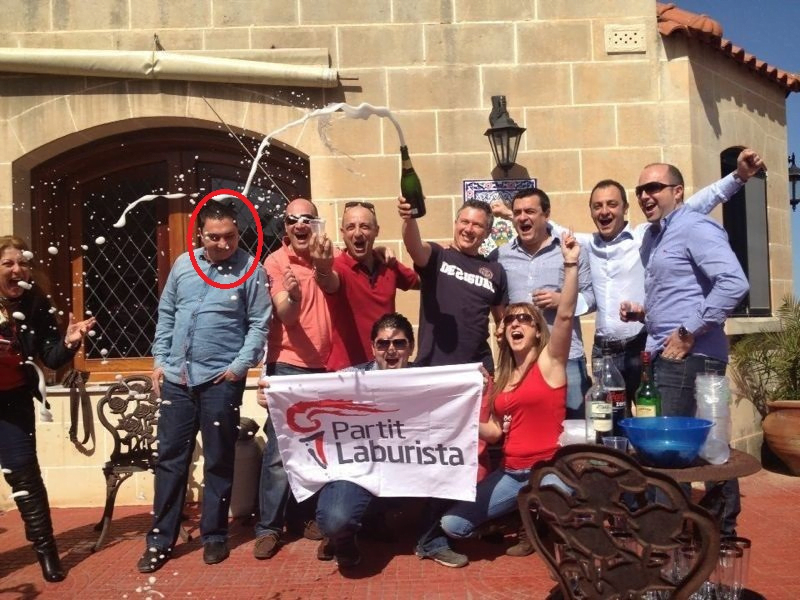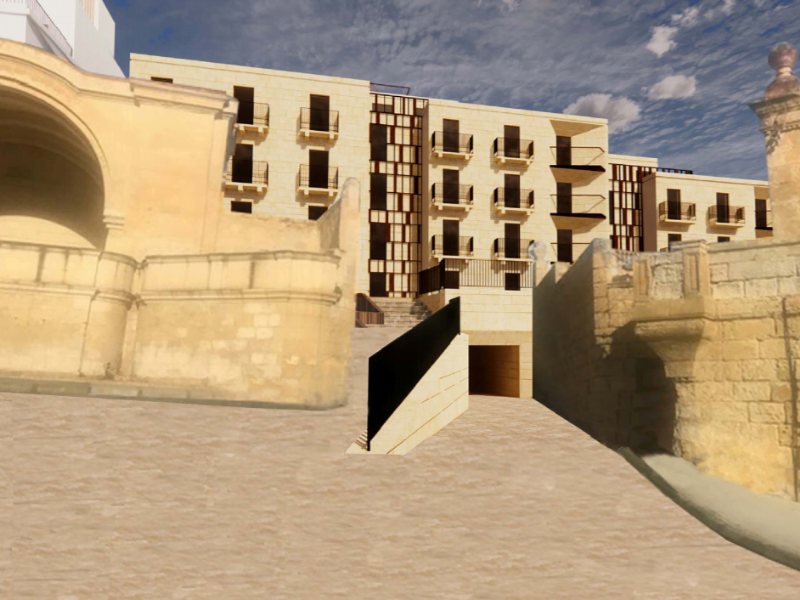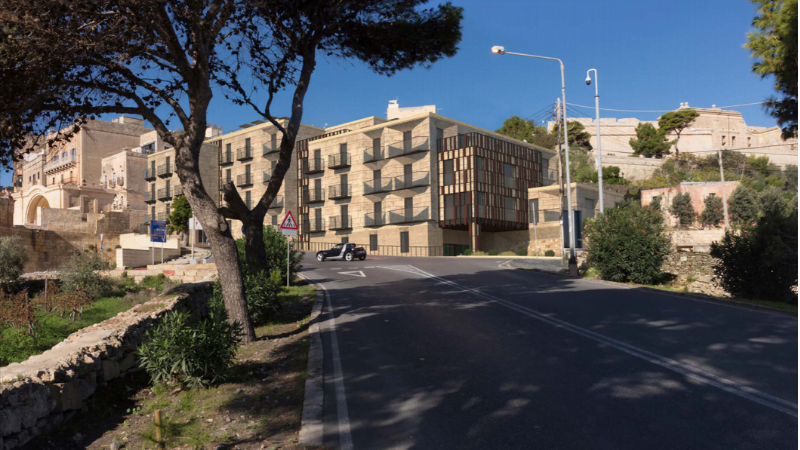All is set for the Planning Authority to approve another controversial development this Thursday for a 81-room hotel to replace the former Tattingers venue on Rabat’s Saqqajja Hill – the project includes the take-up of public land.
The green light is expected to be given despite strong objections by various NGOs and residents, as well as concerns by the Environment and Resources Authority (ERA) and the Superintendence of Cultural Heritage (SCH) that the development will negatively impact the area and affect Mdina’s status on the tentative list of Unesco World Heritage Sites.
The project, years in the making, is planned by the owners of the former disco, Dominic Micallef and his family, even though the application was submitted by another person – Jeffrey Cutajar, a director on Micallef’s BB Hotel Malta Ltd.

Dominic Micallef celebrating Labour’s electoral victory with supporters including Matthew Pace (holding flag), who is now facing charges of money laundering, and MCST Chairman Jeffrey Pullicino Orlando.
The architect of the project is Jesmond Mugliett, a former PN Minister who fell out with his Party after failing to be reappointed to Cabinet in 2008.
The controversy around this project is further compounded by the authorities’ willingness to allow public land to be used for the project through the building of tunnels beneath the public road and the use of an area next to the iconic Loġġa tal-Palju – a 16th century Grade A scheduled building located across the road from the hotel development.
The new development
When Dominic Micallef first proposed a project to turn his Tattingers club, which was a cash cow in the 90s, into a 5-star hotel, PR consultant Lou Bondi was tasked with softening the expected backlash.
Yet the project was still widely opposed, including by the Environment and Resources Authority (ERA) and the Superintendence of Cultural Heritage (SCH).
What followed is years in which the project’s architects discussed alternatives and a scaling down of plans. Then, last month, the Planning Directorate issued a favourable recommendation, saying the project has been modified substantially to satisfy all those concerned.
This green light was issued after both ERA and the SCH softened their stance against the project, following discussions held behind closed doors between the architect, the developers and the authorities.
The latest version of the hotel project will see the demolition of the existing commercial and residential buildings, situated just 100 metres away from the imposing Mdina bastions. Apart from a hotel, the development includes restaurants, a conference area, two pools at roof level, an entrance forecourt and a services area.
The concerns listed by objectors to the project include the negative impact on a historically and culturally significant site and the risk to the foundations of the old city’s fortifications, particularly the bastions.
Objectors also complained about the aesthetic and architectural impact on the iconic skyline of Mdina, sound and light pollution next to the ‘Silent City’ and the use of government property by the developers.
Developers granted consent to use public land

Use of public land opposite the proposed development has been granted for the project.
Infrastructure Malta and Transport Malta – both government agencies falling under the political wing of Rabat politician Ian Borg – gave their consent to the project.
It is not yet known what deal was reached the Lands Authority, which until a few months ago also fell under Ian Borg’s responsibility, for the granting of public land.
This includes the digging of two pedestrian tunnels beneath the road, leading to private parking for the hotel in Triq it-Tigrija, with a pedestrian entrance just adjacent to the Loġġa tal-Palju.
According to a number of objections submitted, the excavation necessary for these tunnels might endanger the foundations of the Loġġa risking a total collapse, along with another building.
It is also being claimed that parts of Tattingers, which is now to be turned into a hotel, was built illegally on public land. However, the Planning Authority said the Lands Authority had given its clearance and that “ownership issues do not form part of the Planning Directorate’s jurisdiction”.














Greed has taken this island hostage to the point of no return
This hotel will be a non starter. It is situated inland and in a very noisy intersection (remember Verdala Hotel?). It will be an eyesore for anyone going up to Rabat
As the rock foundations in the area are very fragile, it will become uninhabitable sooner than later. Besides does Malta need more hotels?
And then Robert Musumeci, on his LinkedIn profile, pontificates about how the PA should be protecting the rights of others vis-a-vis construction
Korruzzjoni, hmieg u decizjonijiet moqzieza saru l’ordni tal gurnata taht dal gvern…..u ghadek issib minn icapcaplu!!